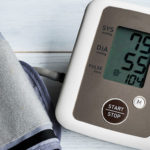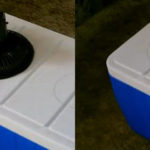As the summer heat intensifies, so does the demand for electric fans to keep us cool. However, cranking up the fan speed doesn’t always provide the desired relief and can sometimes make you feel even warmer and more uncomfortable than before.
Why Do We Feel Hotter When Using a Fan on a Sunny Day?
Electric fans work by circulating the surrounding air, creating a wind chill effect. As the fan blows, it helps evaporate sweat from our skin, thereby lowering body temperature and providing a cooling sensation. However, under certain conditions, fans may not deliver the expected cooling effect.
Here are some reasons why using a fan on a hot day can make you feel hotter:
The Heat Convection Effect
When you turn up the fan speed, the wind velocity increases significantly. On sweltering days, the surrounding air is usually hotter. The fan blows hot air from surfaces such as floors, walls, and furniture toward you, enhancing the feeling of warmth. This heat convection effect can elevate the perceived skin temperature, especially when the indoor air is already warm.

Why does using a fan on a hot day sometimes make you feel hotter? (Image: Emsisoft)
Professor Ollie Jay, a health scientist and researcher at the University of Sydney, Australia, explains: “It’s the same mechanism as an oven. A chicken in an oven will cook faster when you turn on the fan because convection speeds up the heating process.”
When an electric fan operates at high power, it generates a strong gust of wind, stirring up the air in the room. If the room temperature is high, this powerful wind will blow hot air directly onto your body, increasing the sensation of warmth instead of cooling you down. This is why you may feel hotter when using a fan on a sunny day.
Dehydration
Running the fan at high speed accelerates sweat evaporation from your skin. While this can provide a temporary cooling sensation, it also leads to faster dehydration. As your body loses more water, you may experience increased thirst and fatigue, resulting in a feeling of warmth and discomfort.
The human body regulates temperature by sweating. Evaporation of sweat helps cool the body down. However, if this process occurs too rapidly, the body loses water and minerals at a faster rate, leading to fatigue, thirst, and even weakness. This explains why using a fan on a hot day can make you feel hotter.
Dry Air
A fan blowing at high speed can dry out the air in a room. While dry air accelerates sweat evaporation, it also dries out your skin and respiratory tract, causing discomfort. Especially in an already arid environment, the fan can exacerbate the situation, making you feel warmer.
Dry air also depletes moisture from the mucous membranes in the nose and throat, leading to irritation and discomfort. Particularly at night, when the fan runs continuously, you may struggle to fall asleep due to the excessively dry air.
Using a fan in hot and dry conditions is a combination that negates the body’s cooling effect through evaporation. As a result, your body temperature rises instead of dropping.
The World Health Organization advises that when outdoor temperatures exceed 35°C and humidity reaches 100%, using a fan may make you feel hotter. In extremely hot and dry conditions, when your body temperature has already risen to 38°C, using a fan can increase the risk of heat stroke.
The Fan Doesn’t Cool the Air
A fan doesn’t lower the air temperature in a room; it merely circulates the air. On extremely hot days, the high air temperature causes the fan to blow warm air, failing to provide any cooling effect and potentially increasing the perceived temperature.
If the room is sealed and lacks ventilation, the air temperature will rise due to heat diffusion from various sources, such as lights, electronic devices, and human bodies. The fan only circulates the warm air without reducing the overall room temperature.
Tips for Effective Fan Usage
To maximize the cooling effect of electric fans, consider the following suggestions:
Combine with Other Cooling Methods
Using a fan in conjunction with air conditioning or an air cooler can enhance cooling performance. The fan will help distribute the cool air from the AC or cooler evenly throughout the room. This combination also saves energy, as the fan circulates the cool air, reducing the workload on the air conditioner.
You can also place a bowl of cold water or ice in front of the fan to blow cooler air.
Strategic Fan Placement
Position the fan near a window or door to push hot air out and draw cool air in. Avoid placing the fan in areas with lots of furniture or other obstacles that may block the airflow.
By placing the fan strategically, you can take advantage of natural wind currents to cool the room. Especially at night, when outdoor temperatures drop, a fan placed near an open window will help draw in cooler air.
Moderate Fan Speed

Instead of cranking up the fan speed, adjust it to a moderate level to generate a gentle breeze that cools effectively without overly drying the air. (Image: Ciphr)
Instead of turning the fan up to maximum speed, opt for a moderate setting to create a gentle breeze that provides cooling without excessively drying the air.
A moderate fan speed will offer a comfortable experience without causing rapid dehydration. You may also use an oscillating fan to distribute the airflow more evenly throughout the room.
Increase Humidity
Place a basin of water or a humidifier in the room to prevent the air from becoming overly dry. This will make your fan experience more pleasant.
Maintaining an appropriate humidity level in the room will keep your skin and respiratory system from drying out. Additionally, higher humidity during the night will promote deeper and more restful sleep.
Stay Hydrated
Ensure you drink enough water to prevent dehydration during hot weather. Maintaining proper hydration will make you feel cooler and more comfortable when using a fan.
Drinking adequate water also helps your body regulate temperature more effectively, reducing the risk of heat exhaustion and fatigue caused by dehydration. You can consume water, fruit juices, or sugar-free beverages to replenish lost fluids.
According to VTC News
Exploring the Pros and Cons of Sleeping in an Air-Conditioned Room
Is sleeping with an air conditioner a good idea? As concerns over the adverse effects of air conditioning on our health increase, it’s important to understand the risks and rewards of using air conditioning while sleeping. Let’s examine the benefits and drawbacks of sleeping with an air conditioner, and the protective measures one should take.
How to Make a DIY Home Air Conditioner: A Step-by-Step Guide for Keeping Cool
Beat the summer heat without breaking the bank! Our guide will show you how to make your own air conditioner using materials found around the house and no special tools needed! With global temperatures on the rise due to climate change, having an air conditioner at home can be a relief – and now it can be easy and affordable.



































